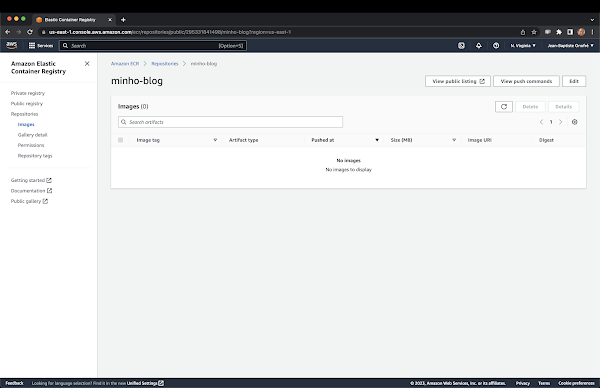Apache JMeter to test Apache ActiveMQ on CI with Maven/Jenkins
Apache JMeter is a great tool for testing, especially performance testing.
It provides a lot of samplers that you can use to test your web services, web applications, etc.
It also includes a couple of samplers for JMS that we can use with ActiveMQ.
The source code of this blog post is https://github.com/jbonofre/blog-jmeter.
Preparing JMeter for ActiveMQ
For this article, I downloaded JMeter 2.10 from http://jmeter.apache.org.
We uncompress jmeter in a folder:
$ tar zxvf apache-jmeter-2.10.tgz
We are going to create a test plan for ActiveMQ. After downloading ActiveMQ 5.9.0 from http://activemq.apache.org, we install and start an ActiveMQ broker on the machine.
$ tar zxvf apache-activemq-5.9.0-bin.tar.gz$ cd apache-activemq-5.9.0/bin$ ./activemq console... INFO | Apache ActiveMQ 5.9.0 (localhost, ID:latitude-45782-1409139630277-0:1) started
In order to use ActiveMQ with JMeter, we have to copy the activemq-all-5.9.0.jar file provided in the ActiveMQ distribution into the JMeter lib folder:
$ cp apache-activemq-5.9.0/activemq-all-5.9.0.jar apache-jmeter-2.11/lib/
We can now start jmeter and start to create our ActiveMQ test plan:
$ cd apache-jmeter-2.10/bin$ ./jmeter.sh
In the default test plan, we add a thread group to simulate 5 JMS clients that will perform the samplers 10 times:
In this thread group, we add a JMS Publisher sampler that will produce a message in ActiveMQ:
We can note the ActiveMQ configuration:
- the sampler uses the ActiveMQ JNDI initial context factory (
org.apache.activemq.jndi.ActiveMQInitialContextFactory) - the Provider URL is the ActiveMQ connection URL (
tcp://localhost:61616in my case). You can use here any kind of ActiveMQ URL, for instancefailover:(tcp://host1:61616,tcp://host2:61616)). - the connection factory is simply the default one provided by ActiveMQ:
ConnectionFactory. - the destination is the name of the JMS queue where we want to produce the message, prefixed with dynamicQueues:
dynamicQueues/MyQueue. - by default, ActiveMQ 5.9.0 uses the authorization plugin. So, the client has to use authentication to be able to produce a message. The default ActiveMQ username is admin, and admin is the default password.
- finally, we set the body of the message as static using the textarea:
JMeter message ...
Now, we save the plan in a file named activemq.jmx.
For a quick test, we can add a Graph Results listener to the thread group and run the plan:
We can check in the ActiveMQ console (pointing a browser on http://localhost:8161/admin) that we can see the queue MyQueue containing the messages sent by JMeter:
Our test plan is working, we have some metrics about the execution in the graph (it’s really fast on my laptop ;)).
This approach is great to easily implement performance benchmark, and creates some load on ActiveMQ (to test some tuning and configuration for instance).
It can make sense to do it in a continuous integration process. So, let’s see how we can run JMeter with Maven and integrate it in Jenkins.
Using jmeter maven plugin
We have two ways to call JMeter with Maven:
- we can call the local JMeter instance using the exec-maven-plugin. JMeter can be called in “batch mode” (without the GUI) using the following command:
$ apache-jmeter-2.10/bin/jmeter.sh -n -t activemq.jmx -l activemq.jtl -j activemq.jmx.log
We use the options:
-nto disable the GUI-tto specify the location of the test plan file (.jmx)-lto specify the location of the test plan execution results-jto specify the location of the test plan execution log
- we have a JMeter Maven plugin. It’s the one that I will use for this blog.
The JMeter Maven plugin allows you to run a JMeter meter plan directly from Maven. It doesn’t require a local JMeter instance: the plugin will download and bootstrap a JMeter instance.
The plugin will look for JMeter JMX files in the src/test/jmeter folder by default.
We create a POM to run JMeter:
<?xml version="1.0" encoding="UTF-8"?><project xmlns="http://maven.apache.org/POM/4.0.0" xmlns:xsi="http://www.w3.org/2001/XMLSchema-instance" xsi:schemaLocation="http://maven.apache.org/POM/4.0.0 http://maven.apache.org/xsd/maven-4.0.0.xsd"> <modelVersion>4.0.0</modelVersion> <groupId>net.nanthrax.blog</groupId> <artifactId>jmeter</artifactId> <version>1.0-SNAPSHOT</version> <packaging>pom</packaging> <build> <plugins> <plugin> <groupId>com.lazerycode.jmeter</groupId> <artifactId>jmeter-maven-plugin</artifactId> <version>1.9.1</version> <executions> <execution> <id>jmeter-test</id> <phase>verify</phase> <goals> <goal>jmeter</goal> </goals> </execution> </executions> <dependencies> <dependency> <groupId>org.apache.activemq</groupId> <artifactId>activemq-all</artifactId> <version>5.9.0</version> </dependency> </dependencies> </plugin> </plugins> </build></project>
We can now run the JMeter test plan:
$ mvn clean verify...[INFO] Scanning for projects...[INFO][INFO] ------------------------------------------------------------------------[INFO] Building jmeter 1.0-SNAPSHOT[INFO] ------------------------------------------------------------------------[INFO][INFO] --- jmeter-maven-plugin:1.9.1:jmeter (jmeter-test) @ jmeter ---[INFO][INFO] -------------------------------------------------------[INFO] P E R F O R M A N C E T E S T S[INFO] -------------------------------------------------------[INFO][INFO][info][debug] JMeter is called with the following command line arguments: -n -t /home/jbonofre/Workspace/jmeter/src/test/jmeter/activemq.jmx -l /home/jbonofre/Workspace/jmeter/target/jmeter/results/20140827-activemq.jtl -d /home/jbonofre/Workspace/jmeter/target/jmeter -j /home/jbonofre/Workspace/jmeter/target/jmeter/logs/activemq.jmx.log[info] Executing test: activemq.jmx[info] Completed Test: activemq.jmx[INFO][INFO] Test Results:[INFO][INFO] Tests Run: 1, Failures: 0[INFO][INFO] ------------------------------------------------------------------------[INFO] BUILD SUCCESS[INFO] ------------------------------------------------------------------------[INFO] Total time: 3.077s[INFO] Finished at: Wed Aug 27 14:58:09 CEST 2014[INFO] Final Memory: 14M/303M[INFO] ------------------------------------------------------------------------
We can see in the ActiveMQ console that the JMeter messages have been sent.
We are now ready to integrate this build in Jenkins:
We have now included the performance tests in our Jenkins CI.
I would advice to execute the performance tests on a dedicated module or profile, and configure the Jenkins job to execute once per week for instance, or link to a release.
So, we still have our development oriented nightly builds, and we can periodically execute performance tests, and execute the performance tests for a release.









Comments
Post a Comment